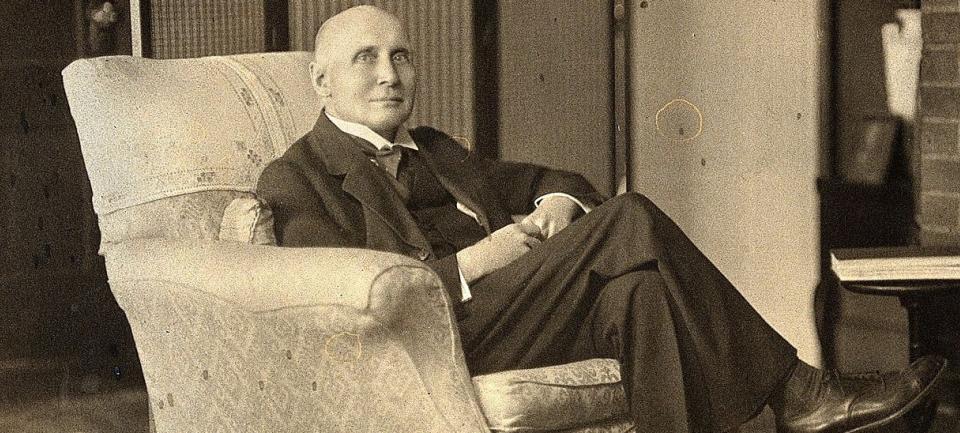A British author named Alfred North Whitehead was born on February 15, 1861, in Ramsgate, Isle of Thanet, Kent, and died in Cambridge, Massachusetts, in 1947. S.), an English mathematician and philosopher who co-wrote Principia Mathematica (1910–13) with Bertrand Russell, began lecturing at Harvard University in the middle of the 1920s and developed a thorough metaphysical theory.

Young Age
Whitehead’s grandfather was Thomas Whitehead, a self-made man who established the prestigious boys’ school Chatham House Academy. Anglican priest and the institution’s administrator, Alfred Whitehead, was later named St. Peter resides in Thanet. His mother was Maria Sarah Buckmaster, a wealthy military tailor’s daughter. Alfred North Whitehead, their young child, is born. He was homeschooled by his father until he was 14 years old, when he was sent to Sherborne School in Dorset, one of the top schools in England, because his parents believed he was too frail to participate in school or active sports. Whitehead received a classical education and demonstrated a special aptitude for mathematics. Despite receiving excessive protection as a child, he proved to be a natural leader. He held the position of head prefect during his senior year of high school and excelled as a game captain. Additionally, he was in charge of all extracurricular discipline.
Professional life
By 1903, Trinity College had appointed Whitehead as a senior lecturer for ten years, made him the head of the mathematics department, and permitted him to extend his teaching career beyond the allotted 25 years as permitted by college statutes. But because Whitehead had not achieved the kinds of innovations that are thought to distinguish an outstanding mathematician, his future was uncertain. (His interest was always philosophical in the sense that it was more concerned with comprehending the nature of mathematics in all of its manifestations and structuring its concepts than with developing new theorems. He had little chance of being given a job as a mathematics professor at Cambridge after his Trinity lectureship. When he moved to London in 1910, he had no job waiting for him there, but he did not wait for it to end. He was, however, a fellow for life and qualified for twice the fellows’ customary quarterly dividend as a result of his many years of devotion to Trinity. Evelyn Whitehead supported the project even though it barely covered the costs for his family.
During his first year in London, Whitehead penned An Introduction to Mathematics (1911), which is still regarded as one of the best books of its kind. technologies and science.
American Career
The most renowned English-language philosopher of science at the beginning of the 1920s was without a doubt Alfred North Whitehead. After Henry Osborn Taylor, a historian and close friend of the university, agreed to donate the money for Whitehead’s salary, Harvard offered him a five-year position as a philosophy professor. He had only two years left in Imperial College at the age of 63. He liked the idea of teaching philosophy, and his wife was totally behind the change. A philosopher of metaphysics comparable to Gottfried Wilhelm Leibniz and G. W. F. Hegel.
In the beginning of 1925, he gave eight lectures in Boston. These lectures, along with his earliest writings on God, were later published as Science and the Modern World. The development, triumph, and outcomes of “scientific materialism,” i.e. e. It vividly described what he had been meditating on for a while. e. which maintains that everything in nature is nothing more than matter in motion or a flow of purely physical energy. This materialism, according to him, is flawed because it equates the physical reality of the world with an abstract mathematical physics system. Whitehead encouraged philosophy to take on the task of filling in the gaps left by these abstractions by returning to the variety of concrete experience and then framing more expansive ideas. This was despite the fact that Whitehead’s mind was at home with such abstractions and that he saw them as genuine discoveries rather than intellectual concoctions. The importance of this book became immediately clear. The passage in which Whitehead invoked two of his favorite poets, Percy Bysshe Shelley and William Wordsworth, to argue for the exclusion of values from nature may have most impressed readers.
Legacy
Whitehead has been admired by luminaries from every field of knowledge. His philosophical and educational works have been translated into many languages. Particularly in the US, his metaphysics has received a great deal of attention. The influence of theologians John B. and David Ray Griffin as well as his own philosophical system have contributed to the term “process theology,” which he coined, becoming most prevalent today. Cobb.
Whitehead’s propensity for being helpful won him a lot of admiration. He was the height of politeness, but he wasn’t soft; he was clever, giving, and subtly unyielding. And he never got into a debate. He was composed and realistic, and he had a fine sense of irony that wasn’t motivated by malice. Whitehead possessed a singular combination of goodness, intelligence, intuition, firmness, and wisdom.
Related Posts
Donald Trump – Best Guide in 2023
